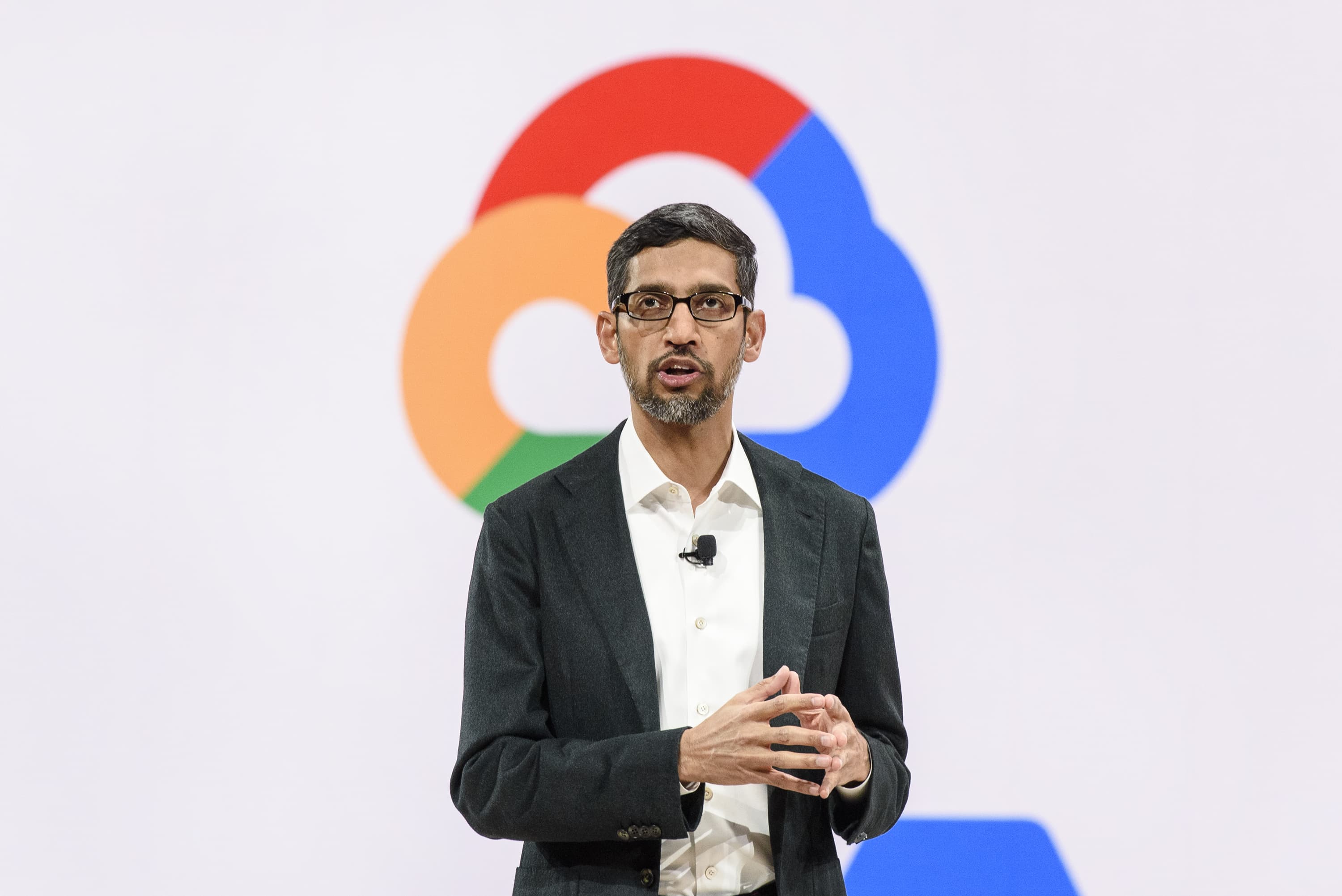Google unveils tech to make it easier for doctors and patients to share health info - CNBC |
| Google unveils tech to make it easier for doctors and patients to share health info - CNBC Posted: 20 Apr 2020 12:46 PM PDT  Sundar Pichai, chief executive officer at Google LLC, speaks during the Google Cloud Next '19 event in San Francisco, California, U.S., on Tuesday, April 9, 2019. Michael Short | Bloomberg | Getty Images Google is announcing the general availability of technology that, if widely adopted, could make it easier for patients to access their own health information via third-party apps. Health care systems could warm to the technology, known as the Google Healthcare API, as new government mandates loom that will require them to make it easier for patients to see and use their health data. However, Google's dominant business as an advertising company that uses customer data to target ads has created negative publicity and stalled some past initiatives in the health space. Google is currently the third largest cloud tech provider, behind Amazon and Microsoft. 'Two years to comply'As of Monday, health care providers can build new systems using the new Google Healthcare API to translate and convert data stored in different types of systems, from imaging systems to medical records software. Although the documentation says that the Healthcare API is meant for "storing and accessing healthcare data in Google Cloud, providing a critical bridge between existing care systems and applications hosted on Google Cloud," Google said that customers aren't required to store the data in Google Cloud. Google's rival Microsoft Azure also has a similar health care API, which is designed to help its health care customers connect to sources, like electronic health records. Health care companies are increasingly being forced to share health information with their patients, as well as the health apps they choose to use. The Department of Health and Human Services released a set of rules earlier this year to prevent health care companies from so-called "information blocking." The practice, which had been going on for years, makes it challenging for people to access their own medical information at the hospital or doctor's office. Some health systems tell patients they'll have to pay for their records, or that the information would only available via a printed PDF or CD-Rom. "Hospitals and vendors have two years to comply with new rules," noted Aneesh Chopra, the first chief technology officer of the White House and the president of Care Journey, a health analytics company, in an interview with CNBC. "This could help them move faster, and it should increase the marketplace of applications that are physician facing, patient facing and potentially health plan facing, so individuals can get their health information that would have been locked up." There have also been well-documented challenges for patients in sharing information between hospitals, particularly those that rely on different medical record vendors. Google Cloud, in a blog post written by Joe Corkery, a doctor and its director of product, and Aashima Gupta, its director of health solutions, notes that it can be a "Herculean effort" for health systems to access a unified view of data from various sources. Google Cloud's health care leaders note that the Covid-19 pandemic shows again why health data interoperability is important. It can help support the kinds of efforts that are already underway, such as the Centers for Disease Control and Prevention's new app that aims to share information from electronic health records with public health departments. That app will launch in May. "Covid-19 is really bringing the entire (health data) interoperability conversation to the forefront," said Gupta, via a virtual call. "It's becoming really crucial from a patient standpoint." "People are now recognizing that there's only way to get though this period and that is to collaborate," added John Halamka, president of Mayo Clinic Platform. Mayo Clinic is a major cloud customer for Google, which has a team of people working nearby out of Rochester, Minnesota. "What's important is that this API is a toolset provided by Google that makes it easier for the doctors and the hospitals to share data. But it's not about sending the data to Google." |
| You are subscribed to email updates from "https google cloud" - Google News. To stop receiving these emails, you may unsubscribe now. | Email delivery powered by Google |
| Google, 1600 Amphitheatre Parkway, Mountain View, CA 94043, United States | |
Comments
Post a Comment